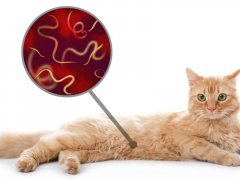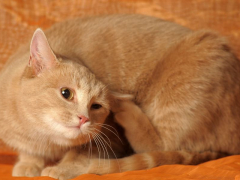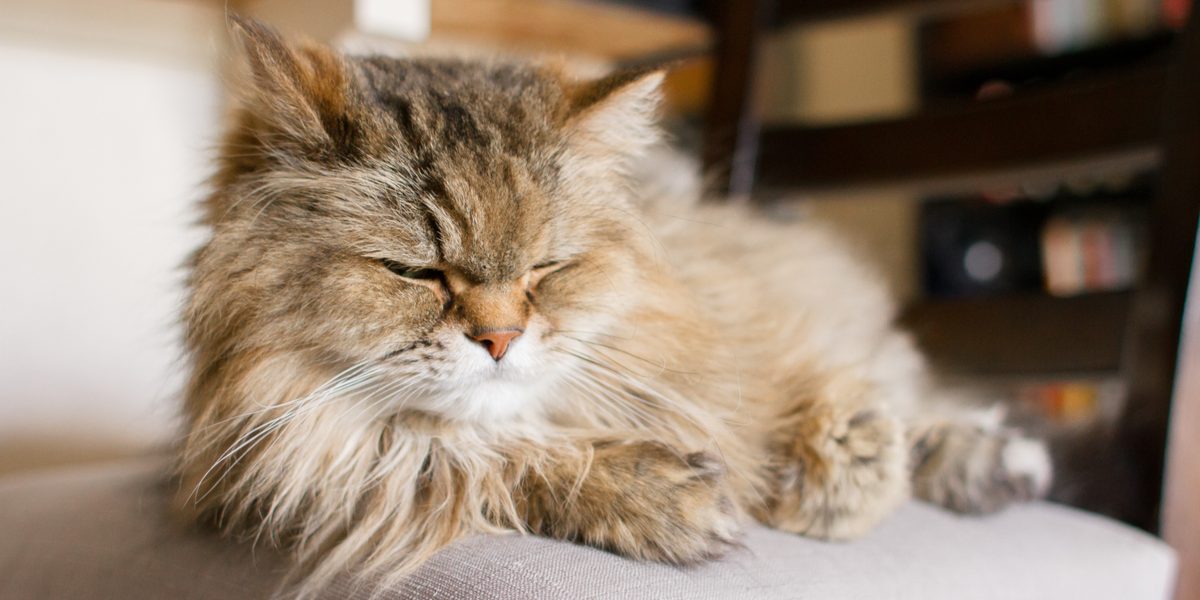
With old age in cats comes age-related health problems. One of these problems is kidney failure, a progressive disease defined by a significant loss of kidney function.
Kidney failure in cats is a big topic, so we’re going to cover a lot of material in this article. We’ll start with some background about the kidneys, then take a deep dive into the nuts and bolts of kidney failure.
Kidney Basics
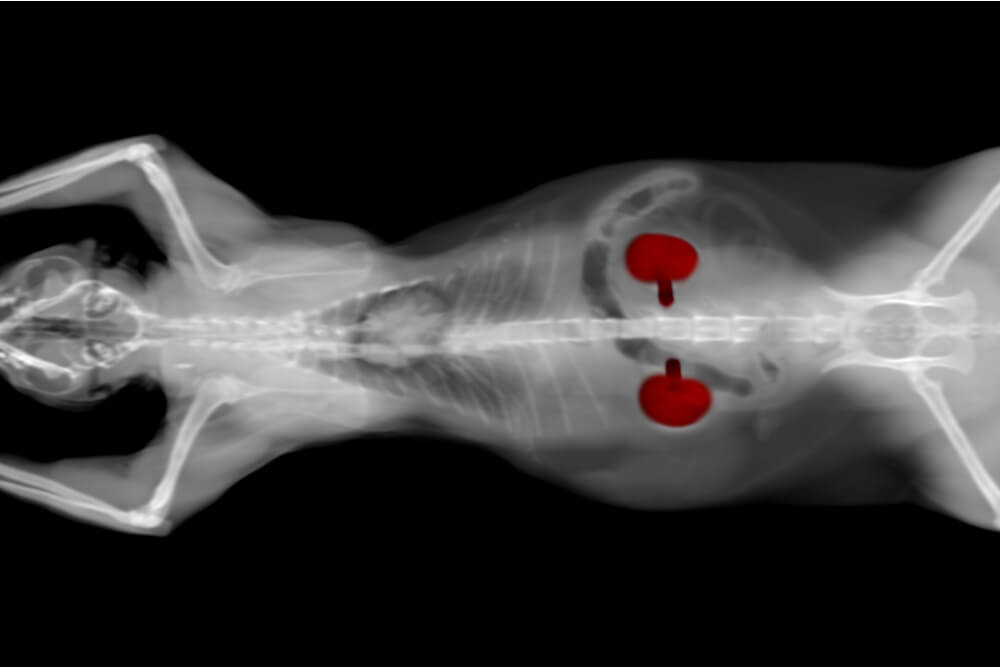
The kidneys are bean-shaped organs responsible for several vital functions, including filtering toxins and waste out of your cat’s bloodstream, producing urine, regulating the blood’s levels of nutrients, and conserving water.
The kidneys are bean-shaped organs inside a cat’s abdomen. They’re not very big, but they pack a powerful punch in maintaining a cat’s health. Here are their major functions: (1) filter toxins and waste products out of the blood; (2) produce urine to get rid of those toxins and waste products; (3) regulate blood levels of essential nutrients, such as calcium and phosphorus; and (4) conserve water.
Different parts of the kidney’s anatomy carry out these functions. For example, nephrons (kidney cells) are responsible for the filtration. The ureters carry urine from the kidneys to the bladder.
Given these essential functions, you can imagine that kidney failure can be a serious blow to a cat’s overall health.
Fortunately, kidneys don’t fail easily. They have lots of reserve capacity, meaning that they can continue functioning relatively well despite suffering some damage.
How Does Kidney Failure Occur?
Kidney failure occurs when at least two-thirds of each kidney is damaged. With this much damage, the kidneys cannot perform their essential functions.
Kidney failure can be acute or chronic.
- Acute kidney failure occurs when the kidneys suddenly stop working. Some of the many causes of acute kidney failure are toxin ingestion (e.g., antifreeze) and shock.
- Chronic kidney failure, also called chronic kidney disease, develops over many years. It usually begins when cats are about six years old and becomes progressively worse as the nephrons slowly die. When more nephrons die than can be replaced, kidney failure becomes apparent.
Chronic kidney failure is much more common than acute kidney failure in cats, so we’ll focus on chronic kidney failure.
What Causes Chronic Kidney Failure?
The exact cause of chronic kidney failure remains unknown. However, many health conditions, such as those listed below, can significantly damage the kidneys over time.
- Kidney cancer
- Kidney stones
- Bacterial infection
- Hypertension (high blood pressure)
- Systemic infection (e.g., bladder, lungs)
- Polycystic kidney disease: fluid-filled cysts that replace a kidney’s normal internal anatomy
What Are the Clinical Signs of Kidney Failure?
Even when the kidneys are failing enough to cause clinical signs, kidney failure may not be the obvious diagnosis. Kidney failure’s clinical signs are non-specific, meaning that they don’t indicate a particular disease.
The clinical signs gradually worsen as kidney failure progresses.
Below are signs of early kidney failure, also called compensated kidney failure:
At this stage, the kidneys compensate for their inability to filter out waste products by producing more urine.
Below are signs of advanced kidney failure, known as uncompensated kidney failure:
At this point, the kidneys can’t compensate for their loss of function. Uremia, which is the life-threatening buildup of toxins and waste in the blood, develops and causes severe clinical signs.
- Reduced appetite
- Weight loss
- Poor coat
- Bad breath
- Vomiting
- Weakness
- Lethargy
- Depression
- Pale gums
- Mouth ulcers
Is your cat displaying any of these symptoms? An at-home saliva test can help you assess your cat’s kidney function to determine whether a trip to the vet is warranted. Learn more about Kidney-Chek here.
How Is Kidney Failure Diagnosed?
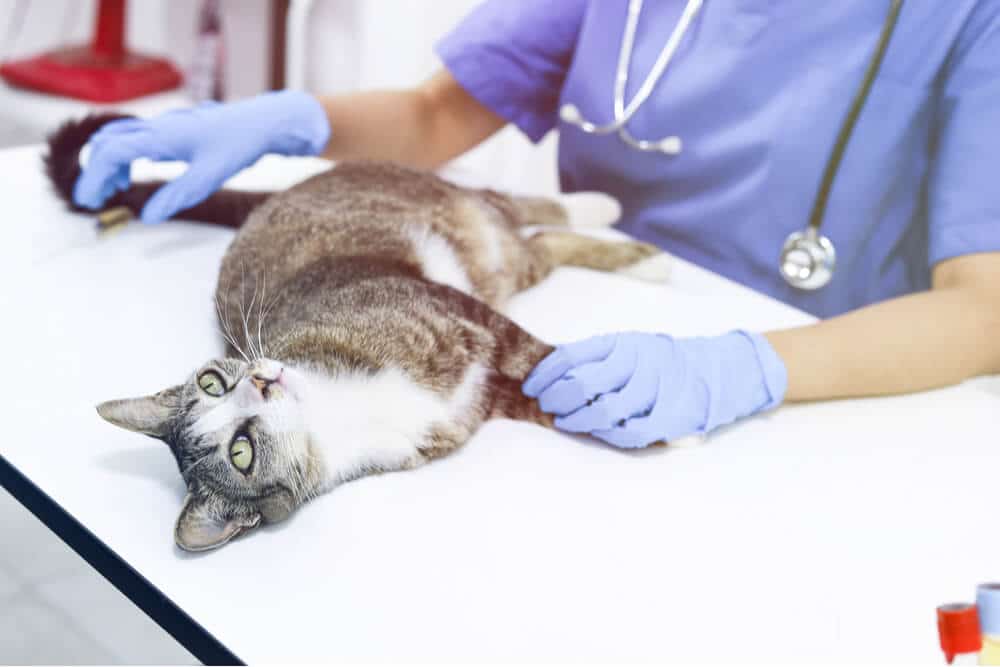
Your veterinarian can diagnose your cat with kidney failure through bloodwork and urinalysis.
Because kidney failure affects older cats, the clinical signs listed above may be mistaken for normal old-age changes.
Diagnostic testing for kidney failure primarily involves bloodwork and a urinalysis.
Several changes on the bloodwork suggest kidney failure:
- Increased blood urea nitrogen (BUN) and creatinine levels: BUN and creatinine are waste products that normal-functioning kidneys easily eliminate.
- Reduced potassium
- Elevated phosphorus
- Anemia (low red blood cell count)
A relatively new blood test that measures a substance called SDMA helps to diagnose kidney failure even earlier than can be done with routine bloodwork.
On a urinalysis, dilute urine would suggest kidney failure, especially if the bloodwork shows elevated BUN and creatinine. Protein may also be present in the urine.
Because hypertension can cause kidney failure, a veterinarian may also take a cat’s blood pressure to help confirm a kidney failure diagnosis.
What Are the Stages of Kidney Failure?
An official staging system, developed by the International Renal Interest Society (IRIS), assigns a stage to chronic kidney failure according to fasting blood creatinine levels. There are also sub-stages, which consider blood pressure and protein in the urine.
The main stages are 1 (least severe) to 4 (most severe). Your cat’s stage of kidney failure will guide treatment.
You can find the most recent IRIS staging guidelines here.
How Is Kidney Failure Treated?
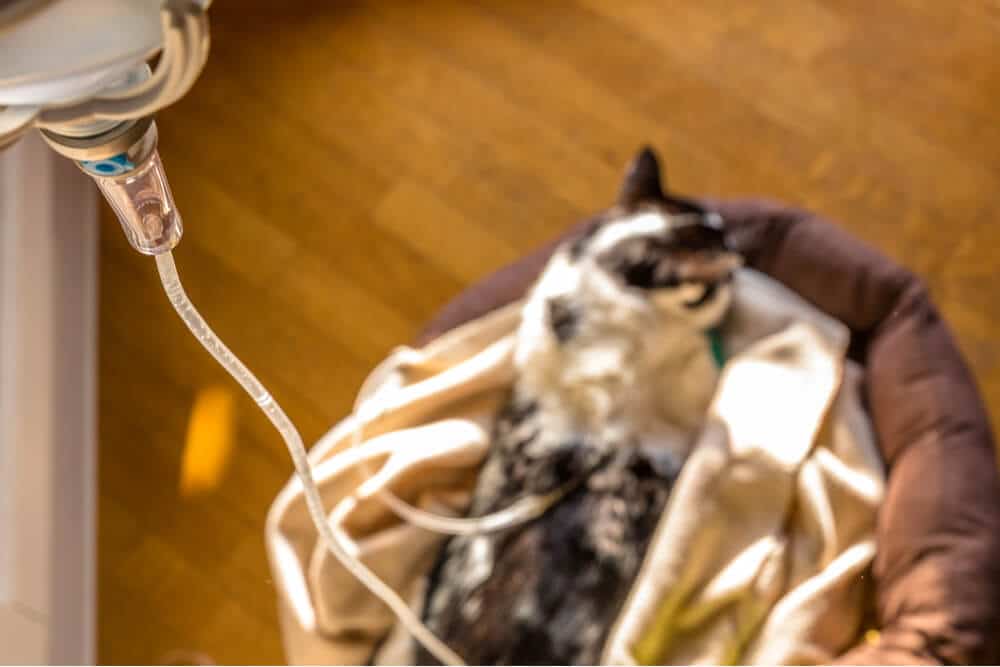
While not curable, kidney failure in cats is treated using a range of therapies, with most aiming to reduce the kidneys’ workload, minimize waste products in the blood, replace lost nutrients, and manage clinical signs. Subcutaneous fluids are often administered to cats who have become dehydrated.
Chronic kidney failure is not curable. Treatment goals include reducing the kidneys’ workload, minimizing waste products from the blood, replacing lost nutrients, and managing clinical signs.
Treatments can generally be grouped into dietary changes and medications. Be aware that not every cat in kidney failure will need every available treatment.
Dietary Changes
The ideal kidney diet is low in protein, phosphorus, and sodium. A low-protein diet is needed to reduce the kidneys’ workload, but the protein must be of high quality. Phosphorus must be kept low because it can accumulate in the blood when the kidneys are failing. Low sodium is necessary because hypertension can worsen kidney function.
Water
Cats in kidney failure need easy access to plenty of fresh water to prevent dehydration. However, kidney failure can make a cat feel lousy and not in the mood to drink water. Adding some flavor to the water, such as some low-sodium flavored broth, can entice a cat to drink.
For cats with severe chronic kidney failure, daily subcutaneous fluids may be necessary to maintain adequate hydration. Don’t worry—giving subcutaneous fluids to your cat is easy to do and is comfortable for your cat.
Supplements
In kidney failure, nutrients such as potassium and vitamins B and C are lost through the urine and need to be supplemented back into the diet. They can be given as daily supplements or included in the kidney diet.
Other supplements include antioxidants and fatty acids to reduce further kidney damage.
Your veterinarian will determine which supplements your cat will need and instruct you on how to add them to your cat’s diet.
Medications
An array of medications helps to manage kidney failure in cats. For example, anti-vomiting medications may be needed to control a cat’s vomiting.
Phosphate binders attach to phosphate in the intestine and prevent it from getting absorbed into the bloodstream.
Erythropoietin, which stimulates red blood cell production, improves anemia.
Blood pressure medications reduce blood pressure and improve blood flow through the kidneys.
As with your cat’s diet, your veterinarian will determine which additional medications your cat will need.
What’s the Prognosis for Kidney Failure?
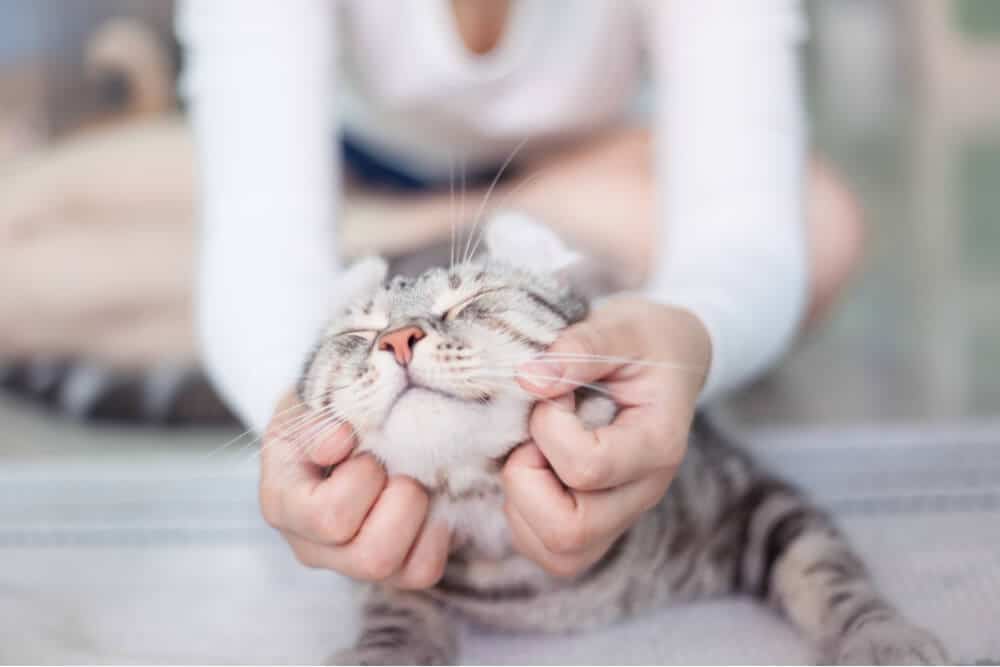
If you’ve seen your cat vomiting, you need to identify the cause and then care for them accordingly.
The prognosis depends on the severity of kidney failure. Kidney failure will progressively worsen, but the treatments listed above can slow down the progression and give your cat a good quality of life even as their kidneys aren’t working so well.
